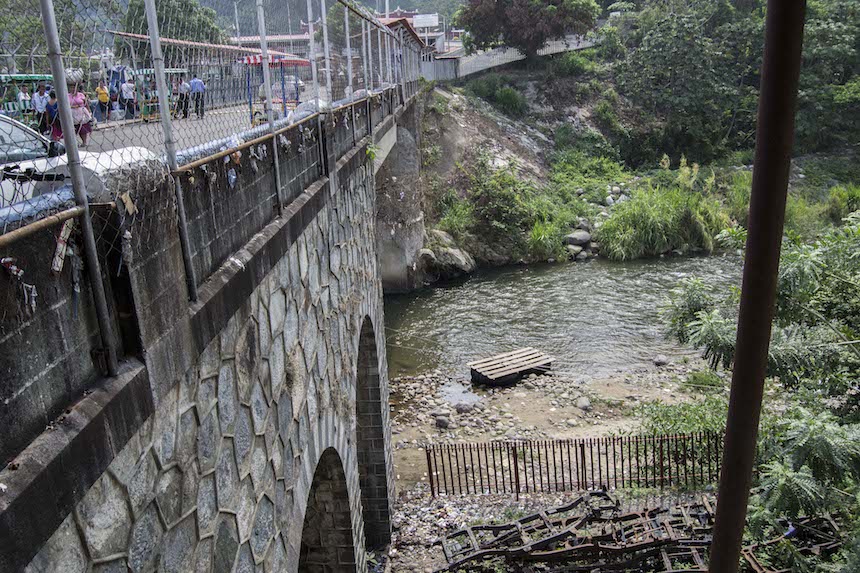 Mexico’s Programa Frontera Sur (Southern Border Program or PFS) is not meeting its goals of containing the mixed migration flows from Central America to Mexico and the United States, according to a paper from Rice University’s Baker Institute for Public Policy.
Mexico’s Programa Frontera Sur (Southern Border Program or PFS) is not meeting its goals of containing the mixed migration flows from Central America to Mexico and the United States, according to a paper from Rice University’s Baker Institute for Public Policy.
Policy Adrift: Mexico’s Southern Border Program examines the performance and impact of the program launched in 2014 to deter unauthorized migration of Central Americans through Mexico’s southern border and into the United States. The paper was authored by Luis Arriola Vega, a visiting scholar at the Baker Institute’s Mexico Center and researcher with the Migration Studies and Transborder Processes Group at El Colegio de la Frontera Sur in Mexico.
“Despite the fact that PFS was conceived as an instrument of state policy intended to foster development and reinforce border security while mitigating migrants’ vulnerability, the program’s results so far raise deep concerns as to whether it has complied with its stated spirit,” Arriola Vega wrote. “Meant at first as a comprehensive initiative, PFS ended up being merely a program to contain in-transit, undocumented migrants, from a security standpoint.”
Arriola Vega said the most salient critique about PFS is that the program has made the journey through Mexico more perilous for migrants and forced them to seek alternative routes.
The program’s management of mixed flows — meaning people who are migrating due to a combination of reasons, such as economic need, family reunification and escape from general violence — is questionable, particularly regarding its serious human rights violations against in-transit migrants and an inadequate policy to handle asylum seekers, he said.
“Containment measures have made routes more dangerous for people heading north,” he wrote. “There has been an increase in smugglers’ fees as further complications to crossing Mexico have evolved. Bribes went up, for example. Field witnesses reported that municipal police officers who historically have preyed on migrants through outright extortion became particularly upset because outsiders (such as federal police agents) had to be let into the scheme. As more people got involved, the larger the pool of the corrupt gains to be apportioned among accomplices and participants. All the ills and abuses migrants endure, be it extortion, kidnappings, robberies, rape, etc., were aggravated.”
Deportations under Programa Frontera Sur considerably increased, Arriola Vega found. The Baker Institute notes that according to a report prepared by a number of advocate groups working with migrants, from July 2014 to June 2015, the percentage of migrants apprehended rose by 73 percent compared with the same period the year before. In addition, some people who were denied asylum status and eventually deported tried to migrate north again.
The program’s lack of structure and a clear-cut road map may well be at the center of its problems, Arriola Vega concluded. There are very few official documents specifying details about PFS. The only formal directive was the decree published in Mexico’s Official Journal 8 July 2014.
Arriola Vega provides a series of recommendations for Mexico and the United States to pursue both jointly and individually.
“There has to be a drastic shift in the current focus toward migration and border policy agendas, both in Mexico and the United States, particularly when it comes to initiatives like PFS,” Arriola Vega wrote. “Any policy concerning the southern border and migration issues needs to be shaped with a humane approach. Such an approach is especially critical for people who are fleeing from countries besieged by violence. As a migrant advocate said, those who are fleeing violence fear being sent back above anything else. Given this predicament, the non-refoulement principle becomes an imperative when a person has been denied refugee status.”
Mexico and the United States have to continue exerting pressure on Central American governments to address the root causes that drive migrants out, he said. “All parties ought to coordinate initiatives to improve economic and public safety conditions in migrant-sending communities via programs that alleviate poverty, promote employment opportunities and create safe environments for all residents,” Arriola Vega wrote. “This is a cornerstone of mending a social fabric torn apart due to many acute, built-up problems. Programs that embrace the focus and philosophy that has characterized PFS will not solve these deep-rooted difficulties.”


